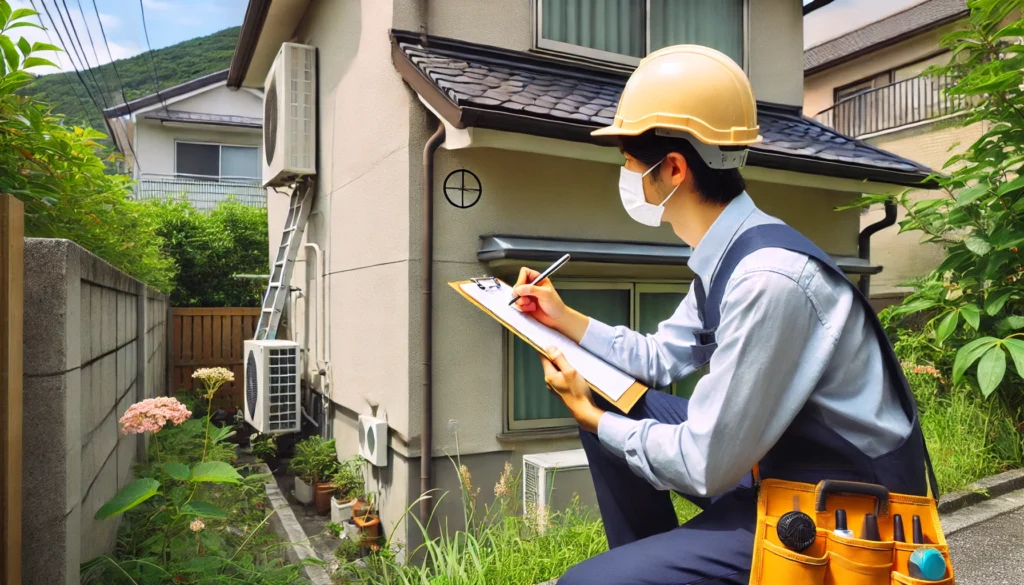The role of a building surveyor is integral to ensuring that buildings and construction projects comply with regulations, maintain structural integrity, and prioritize safety. These professionals are essential in the real estate, construction, and renovation industries. This guide will delve into the key responsibilities of building surveyors, the types of surveys they perform, and why they are crucial for any construction project or property transaction.
In Malaysia, building surveyors operate under stringent regulations set by professional bodies like the Royal Institution of Surveyors Malaysia (RISM), ensuring that properties meet the country’s specific standards. Whether you’re buying a property, planning renovations, or ensuring that a building is compliant with local laws, understanding the role of a building surveyor can save you time, money, and potentially avoid legal pitfalls.
What is a Building Surveyor?
A building surveyor is a highly trained professional who specializes in assessing, inspecting, and ensuring that buildings adhere to all necessary regulations, codes, and safety standards. They inspect the structural integrity of buildings and offer advice on maintenance, repairs, and even demolition, when necessary. Their roles span across various areas, from residential properties to large-scale commercial projects.
In Malaysia, the Royal Institution of Surveyors Malaysia (RISM) plays a key role in defining the standards for building surveyors. They ensure that these professionals are certified and well-equipped to handle their duties within the framework of Malaysian building laws and regulations.
Key Responsibilities of a Building Surveyor
Building surveyors undertake several critical roles, which can vary depending on the type of property, project, and location. Here are some core responsibilities:
1. Property Surveys and Inspections
A key responsibility of building surveyors is to conduct various types of property surveys. These inspections are carried out to determine the condition of a building, its structural integrity, and to highlight any potential defects or issues. Some common types of surveys include:
- Pre-purchase surveys: A comprehensive survey done before buying a property to identify any structural issues or defects.
- Condition surveys: Focused on the general condition of the property and identifying any required maintenance or repairs.
- Dilapidation surveys: Used in lease agreements to assess the condition of a property before and after tenancy.
2. Ensuring Compliance with Building Regulations
One of the most critical roles of a building surveyor is ensuring that buildings meet local and national building regulations. In Malaysia, these include fire safety, accessibility, and energy efficiency standards, as stipulated by bodies like the Royal Institution of Surveyors Malaysia (RISM).
3. Advising on Building Renovations
For property owners considering renovations or extensions, building surveyors offer invaluable advice. They assess whether proposed changes will comply with building regulations and local planning permissions.
4. Project Management and Supervision
In many cases, building surveyors take on the role of project managers, overseeing construction or renovation projects. They ensure that contractors adhere to building standards and that projects stay within budget and on schedule.
Types of Surveys Conducted by Building Surveyors
Building surveyors perform several types of surveys, each suited to different situations:
1. Full Structural Survey
A full structural survey is the most comprehensive survey available. It is particularly important for older buildings or those showing signs of damage. The surveyor will inspect all accessible parts of the property, including the foundation, roof, walls, and services like plumbing and electrical systems.
2. Homebuyer’s Report
A homebuyer’s report is designed for those purchasing a home. It provides a snapshot of the property’s condition, identifying any significant defects that could affect its value or safety.
3. Condition Report
A condition report focuses on the current state of the property, identifying any maintenance issues. It is typically used for newer properties or those in generally good condition.
4. Dilapidation Survey
A dilapidation survey is typically conducted at the start and end of a tenancy to document the condition of the property. This helps in resolving disputes between landlords and tenants regarding damages or repairs.
Importance of Hiring a Qualified Building Surveyor
Hiring a qualified building surveyor provides numerous benefits, including:
1. Ensuring Safety and Compliance
Safety is paramount, and building surveyors ensure that the property is safe for occupants. They identify any risks and make sure the property complies with legal standards.
2. Avoiding Costly Repairs
Building surveyors can identify structural issues early, preventing costly repairs in the future. This is especially important during property transactions or renovations, where hidden defects could otherwise lead to financial burdens.
3. Navigating Complex Regulations
Regulations surrounding buildings and construction can be complex. A building surveyor ensures that your project complies with all relevant codes, minimizing the risk of legal action or fines.
4. Supporting Property Investment Decisions
For property investors, building surveyors provide vital information about the condition and value of a property. This can help you make informed investment decisions, minimizing risks and maximizing returns.

Building Surveyors and Sustainable Construction
Sustainability has become a critical focus in construction, and building surveyors play a crucial role in promoting sustainable practices. Their responsibilities include:
1. Energy Audits
Surveyors can conduct energy audits to determine how energy-efficient a property is. They may recommend upgrades like better insulation, energy-efficient windows, or more sustainable heating and cooling systems.
2. Use of Sustainable Materials
Surveyors advise on using eco-friendly building materials, such as recycled or renewable resources, to minimize the environmental impact of a construction project.
3. Waste Management
Building surveyors ensure that construction sites adhere to waste management regulations, reducing waste and ensuring environmentally responsible disposal practices.
Pro Inspect Solution: Your Trusted Building Inspection Partner
When it comes to ensuring that your property is safe, compliant, and structurally sound, Pro Inspect Solution is your go-to partner in Malaysia. Pro Inspect Solution offers a range of services, including:
- Comprehensive building surveys for pre-purchase assessments.
- Structural assessments for renovations or new builds.
- Dilapidation surveys to record property conditions for lease agreements.
With their team of experienced building surveyors, Pro Inspect Solution ensures that your property meets all regulatory standards and is safe for occupation. Their services cater to both residential and commercial properties, making them a trusted name in the industry. To learn more, visit Pro Inspect Solution.
FAQ
What is a building surveyor?
A building surveyor is a qualified professional who inspects buildings to ensure they meet regulatory standards and are structurally sound.
What is the scope of a building surveyor?
The scope includes structural assessments, compliance with building laws, and advising on renovations, extensions, and repairs.
Is a building surveyor the same as an architect?
No. While an architect focuses on the design of a building, a building surveyor focuses on assessing its structural integrity and compliance with regulations.
What is the role of a surveyor?
A surveyor evaluates a property’s condition, ensures it meets legal standards, and provides advice on repairs, renovations, or new construction.
What will a surveyor do?
A surveyor will inspect the building, identify defects, assess its structural integrity, and offer a detailed report with recommendations for maintenance or repair.
What is the position of a surveyor?
A surveyor holds a key position in the construction industry, responsible for ensuring that buildings are safe, compliant, and sustainable.
By understanding the role of building surveyors and ensuring that your property is in good hands, you can protect your investment, meet legal standards, and contribute to a safer built environment. Whether it’s a new construction project or a property purchase, hiring a qualified building surveyor is essential.


